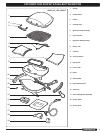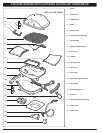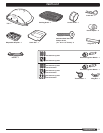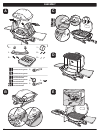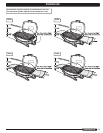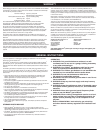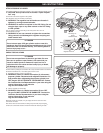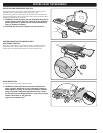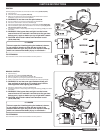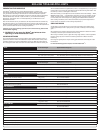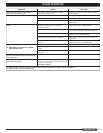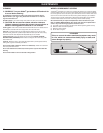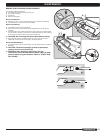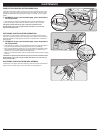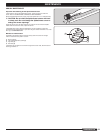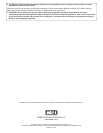Special offers from our partners!

Find Replacement BBQ Parts for 20,308 Models. Repair your BBQ today.

Buy Weber Grill Parts. It couldn't be easier. Find your Weber parts here.
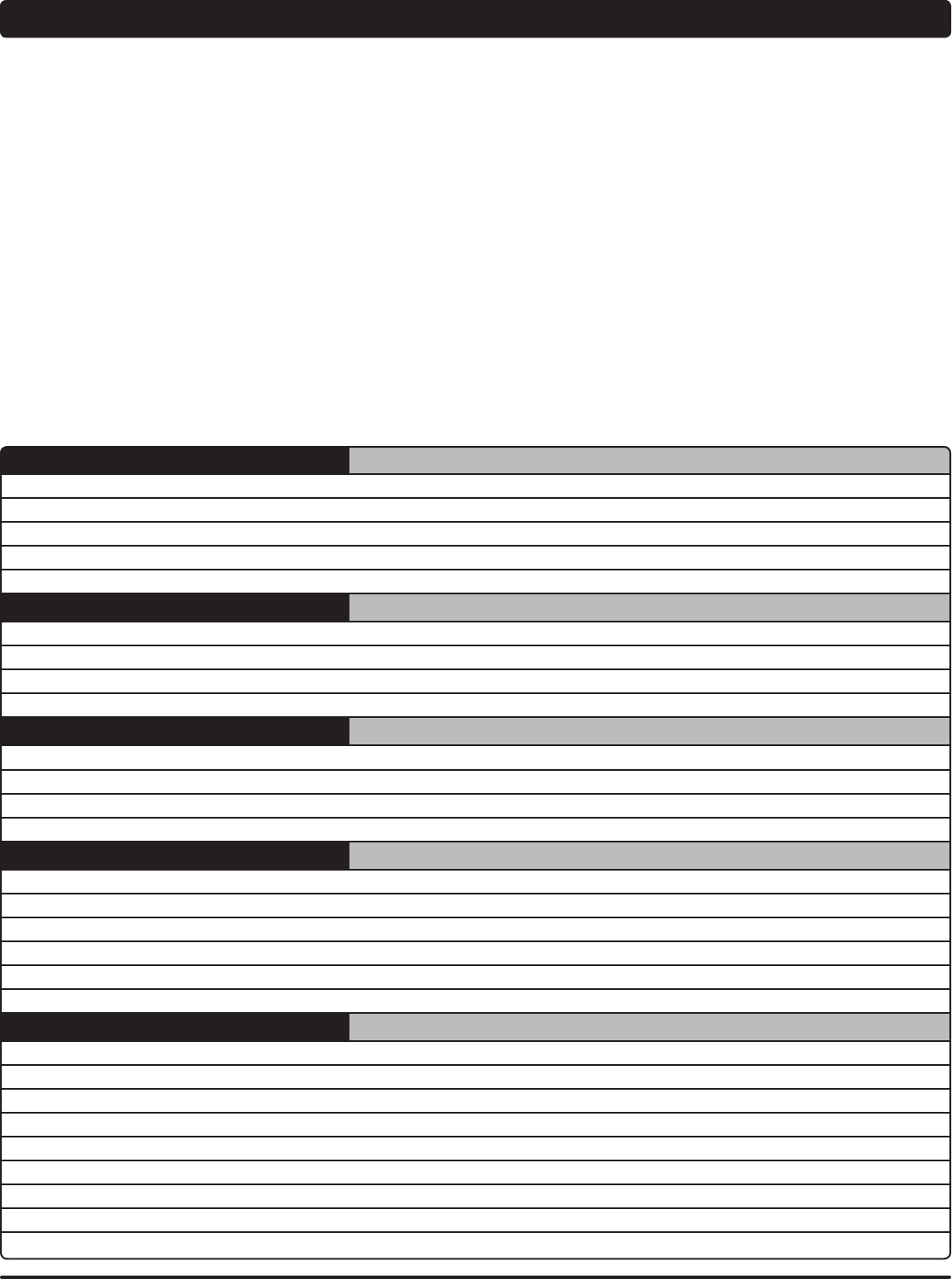
18
GRILLING TIPS & HELPFUL HINTS
PREHEATING THE BARBECUE
Your Weber
®
gas barbecue is an energy-efficient appliance. It operates at an
economical, low BTU rate. Preheating the barbecue before grilling is important. Light
your gas barbecue according to the instructions in this Owner’s Guide. To preheat:
after lighting, turn all burners to START/HI, close the lid, and heat until the temperature
reaches between 500° and 550° F (260° and 290° C), the recommended broiling
temperature. This will take 10 to 15 minutes depending on conditions such as air
temperature and wind.
Note: For the first few uses of your barbecue, the temperature inside the cookbox may
be hotter than shown in your cookbook because the surfaces of the cookbox are still
reflective. Cooking conditions, such as wind and weather, may require the adjustment of
burner controls to obtain the correct cooking temperatures.
If burners go out during cooking, open the lid, turn off the burner(s), and wait five
minutes before relighting.
m WARNING: Do not move the Weber
®
gas barbecue when
operating or while the barbecue is hot.
◆
COOKING METHODS
The most important thing to know about grilling is which cooking method to use for a
specific food, direct or indirect. The difference is simple. With the direct method, which
is similar to broiling, the food is cooked directly over the fire. With the indirect method,
fire is arranged on either side of the food. The indirect method is similar to roasting, but
BEEF
Thickness/Weight Approximate Grilling Time
Steak: fillet, rump or entrecote 2 cm (3/4 in) thick 6 to 8 minutes High
2.5 cm (1 in) thick 8 to 10 minutes High
2.5 – 3 cm (1 to 1-1/2 in) thick 14 to 16 minutes; sear 10 minutes High, Barbecue 4 to 6 minutes Low
Kebab 2.5 – 3 cm (1 to 1-1/2 in) cubes 10 to 12 minutes Medium
Beefburger or rissole 2 cm (3/4 in) thick 8 to 10 minutes Medium
Pork
Thickness/Weight Approximate Grilling Time
Chop: rib, loin, or shoulder 2 – 2.5 cm (3/4 to 1 inch) thick 10 to 15 minutes; sear 6 minutes High, barbecue 4 to 8 minutes Low
3 – 4 cm (1-1/4 to 1-1/2 in) thick 14 to 18 minutes; sear 8 minutes High, barbecue 6 to 10 minutes Low
Loin, boneless 2 – 2.5 cm (3/4 to 1 in) thick 10 to 12 minutes; sear 6 minutes High, barbecue 4 to 6 minutes Low
Sausage 25 to 30 minutes Low
Poultry
Thickness/Weight Approximate Grilling Time
Chicken breast, boneless, skinless 175 g (6 oz) 8 to 12 minutes Medium
Chicken, half 550 – 675 g (1-1/4 to 1-1/2 lb) 1 to 1-1/4 hours Low
Chicken pieces, bone-in breast/wing 30 to 40 minutes Low
Chicken pieces, bone-in leg/thigh 40 to 50 minutes Low
Fish & Seafood
Thickness/Weight Approximate Grilling Time
Fish, fillet or slice 3 – 4 cm (1/4 to 1/2 in) thick 3 to 5 minutes High
1 – 2.5 cm (1/2 to 1 in) thick 5 to 10 minutes High
2.5 – 3 cm (1 to 1-1/4 in) thick 10 to 12 minutes High
Prawns 2 to 5 minutes High
Fish, whole 450 g (1 lb) 15 to 20 minutes Medium
1 kg (2 to 2 1/2 lb) 20 to 30 minutes Medium
VEGETABLES
Thickness/Weight Approximate Grilling Time
Asparagus 6 to 8 minutes Medium
Corn on the cob, husked 10 to 12 minutes Medium
Corn on the cob, in husk 25 to 30 minutes Medium
Garlic, whole 45 to 60 minutes Low
Mushroom: shiitake or button 8 to 10 minutes Medium
Mushroom: chestnut, cups or flats 12 to 15 minutes Medium
Onion, 1.27 cm (1/2 in) slices 8 to 12 minutes Medium
Potato, 1.27 cm (1/2 in) slices 14 to 16 minutes Medium
Aubergine, 1.27 cm (1/2 in) slices 8 to 10 minutes Medium
with the added benefits of that grilled texture, flavour, and appearance you can’t get from
cooking with an oven. Using the right method is the shortest route to great results—and
the best way to ensure a safe degree of doneness.
With each method, you can adjust the burners as desired. The control settings — HIGH,
MEDIUM, LOW, or OFF — are described in the chart to the right. For example, to sear
steaks, set both burners to HIGH, then to complete cooking, set both burners to LOW.
For more ideas, refer to the recipes in the grilling guide included with this barbecue.
Note: Cooking conditions, such as wind and weather, may require the adjustment of
burner controls to obtain the correct cooking temperatures.
◆
GRILLING BASICS
A light coating of oil will help brown your food evenly and keep it from sticking to the
cooking grate. Always brush or spray oil onto your food, not directly onto the cooking
grate.
We suggest that you barbecue with the lid down. Why? Because it reduces the chance
of flare-ups, and cooks your food faster and more evenly.
When using a marinade, sauce or glaze with a high sugar content, or other ingredients
that burn easily, only brush it onto the food during the last ten to fifteen minutes of
barbecuing.
Don’t forget to regularly brush off your cooking grate and clean out the drip pan under
the barbecue.
For more barbecuing tips and recipes, visit www.weber.com
®
.
◆



